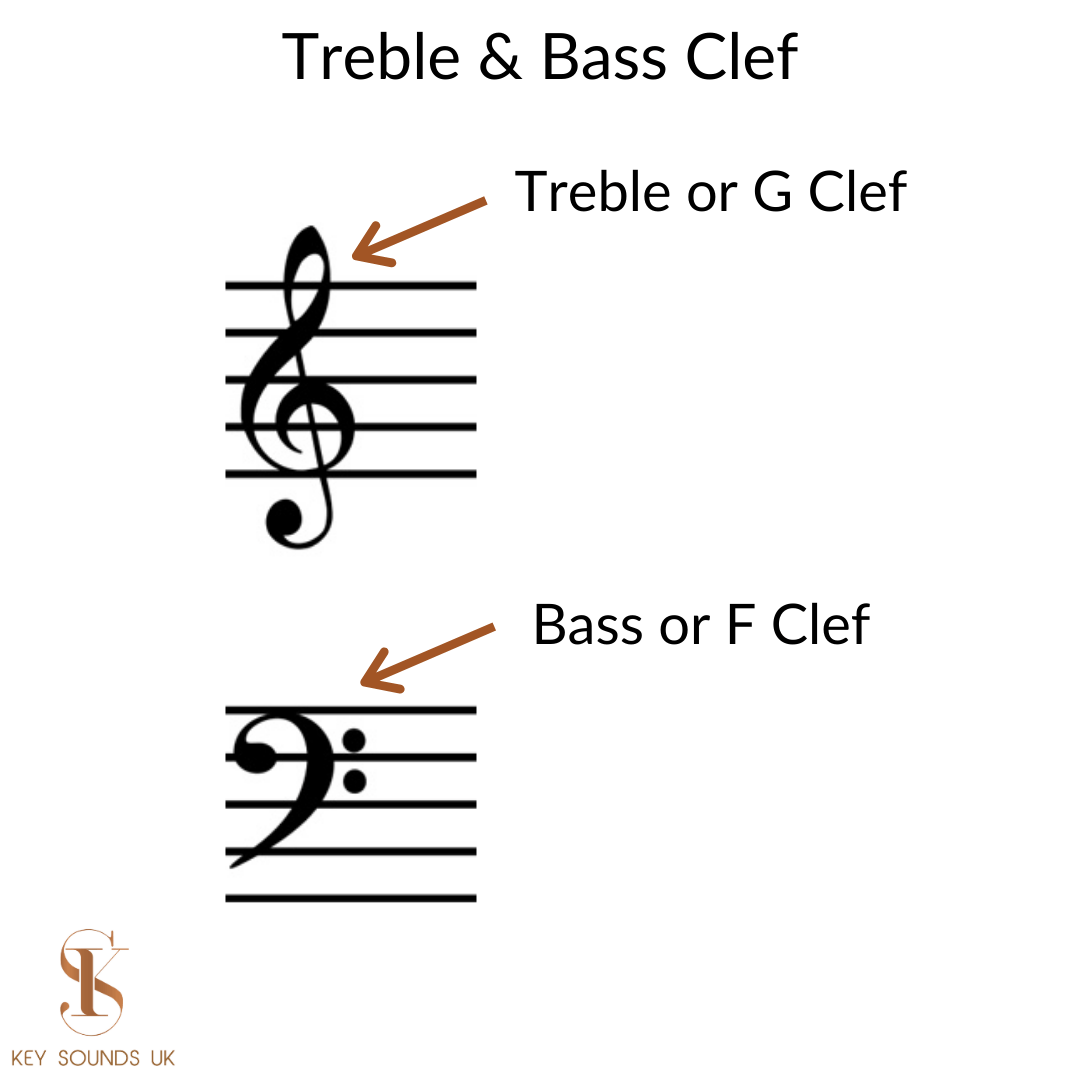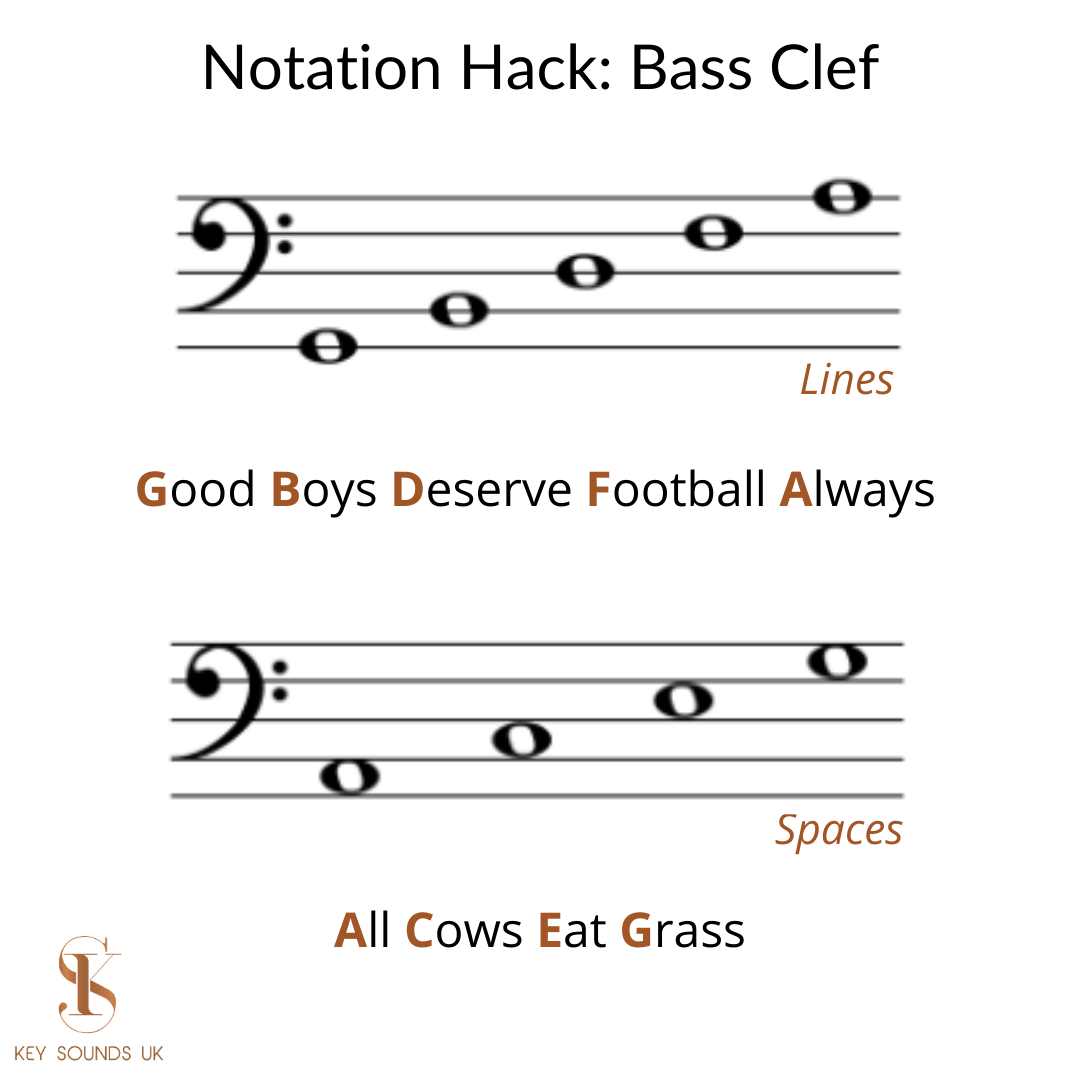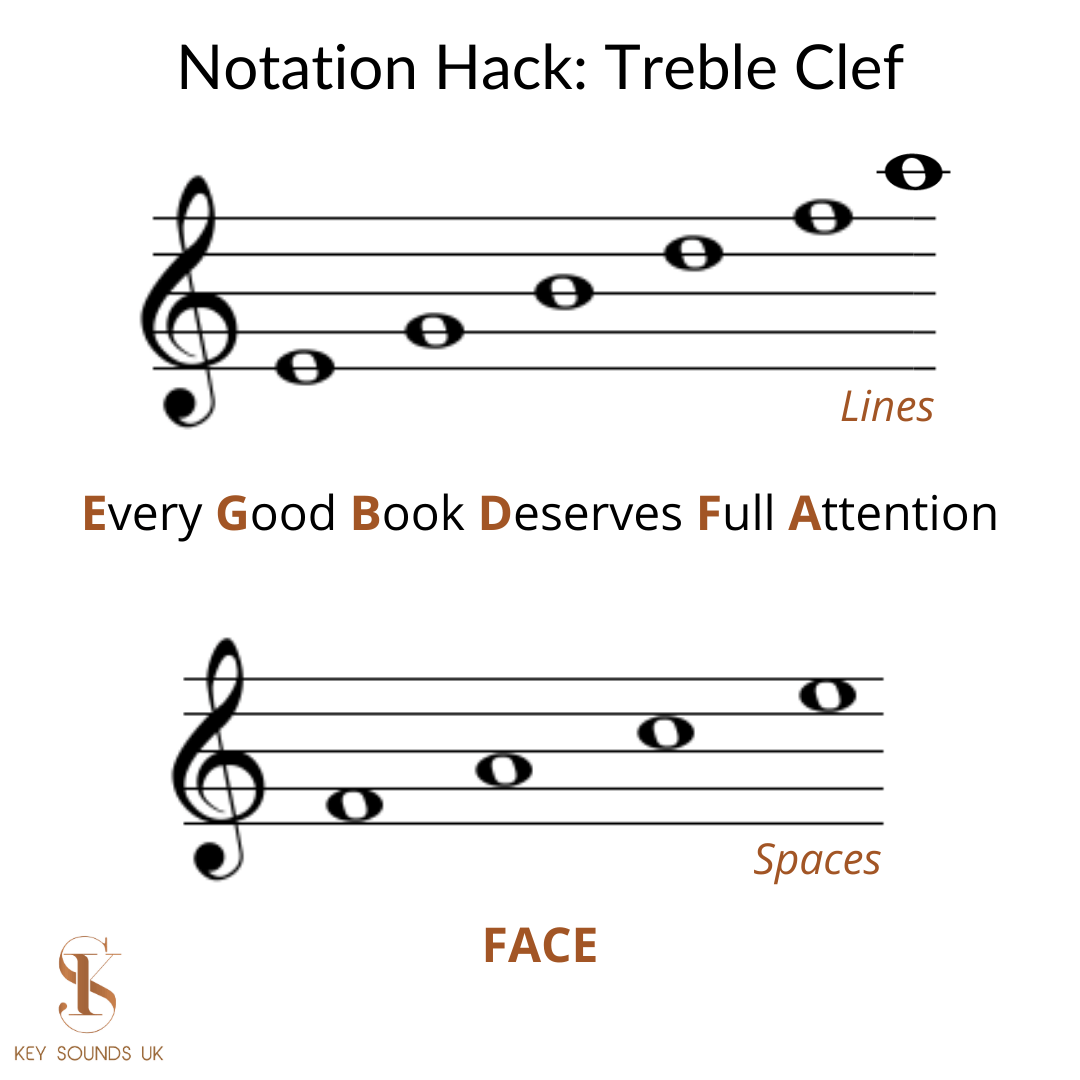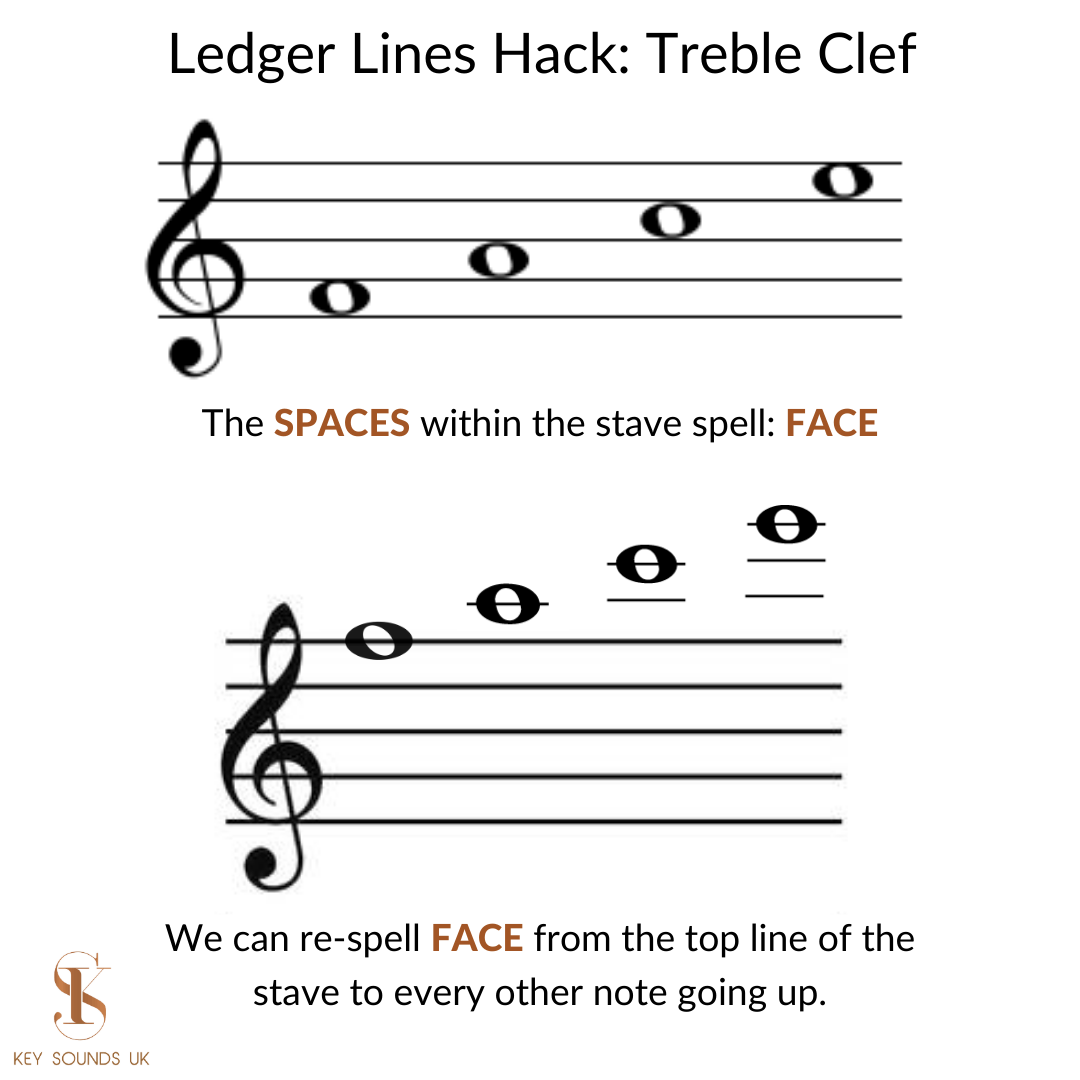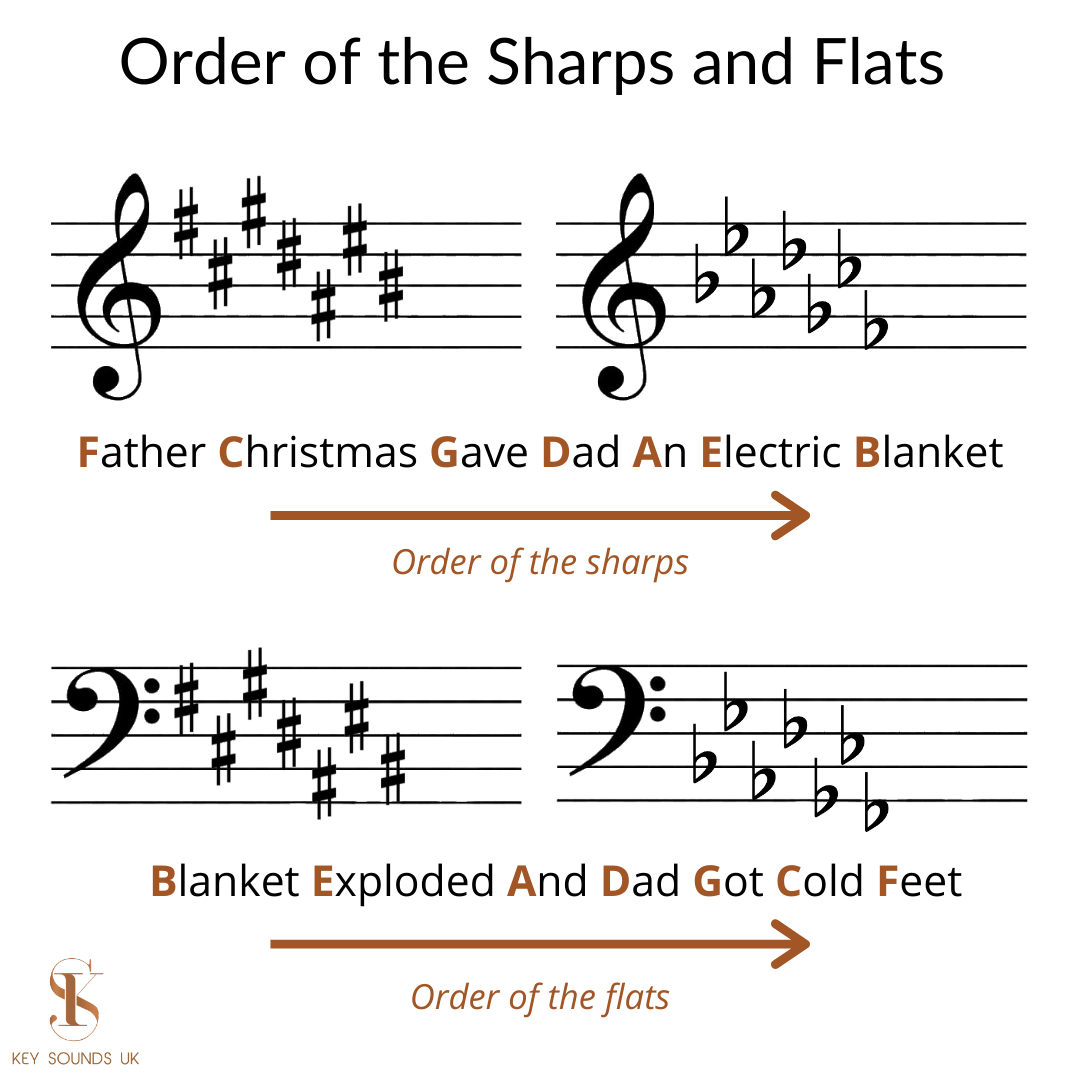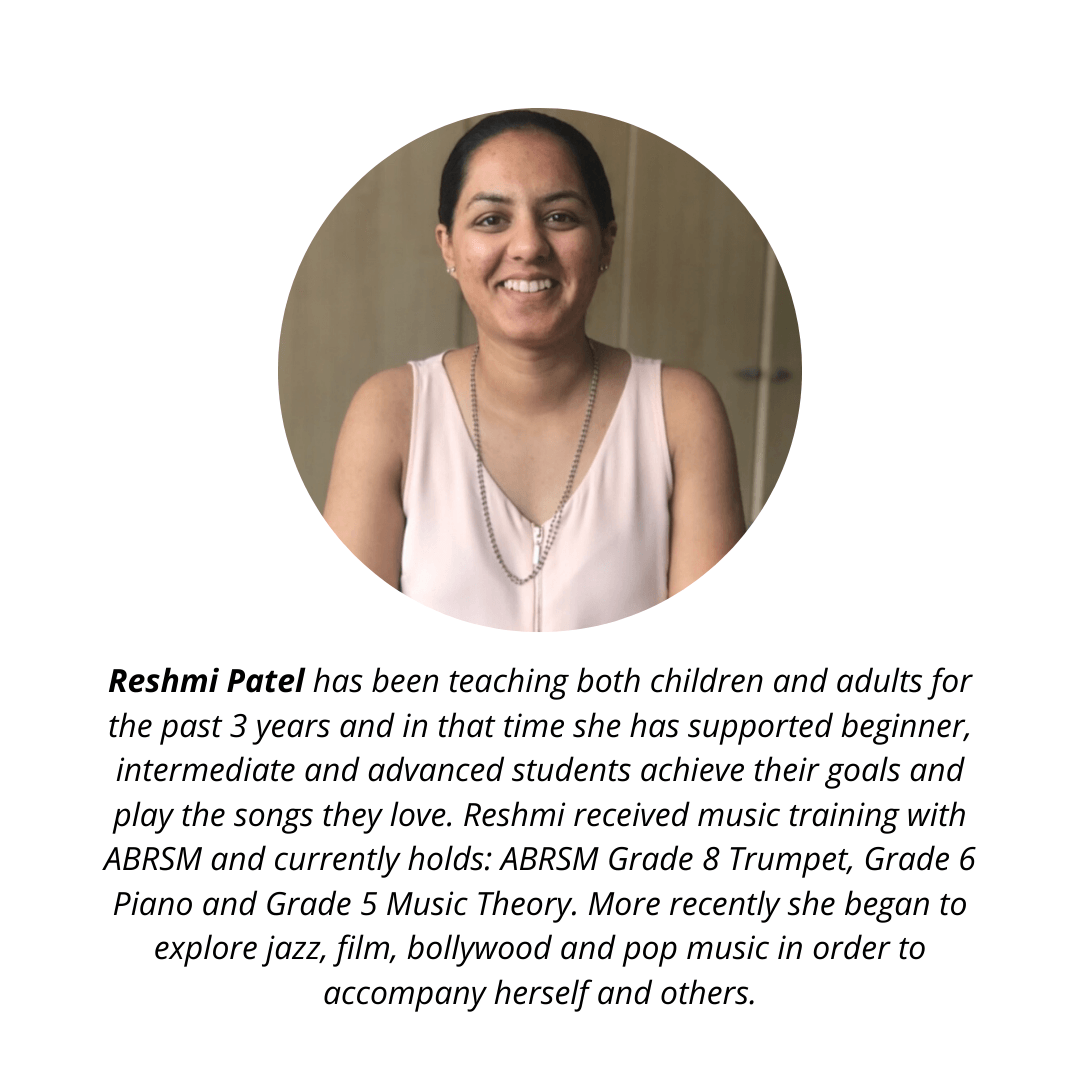Reshmi Patel • July 16, 2020
How to Read Sheet Music Faster
One of the greatest gifts a music student can receive is the gift of independence. To be able to pick up a song of their choice and having the skills to learn and play this at their own pace opens up a lifetime of both enjoyment and expression. In this blog post we’ll provide you with practical tips to ultimately help you read sheet music faster.
1. Stickers for your keys
Image: Amazon, Yuccer Piano Stickers
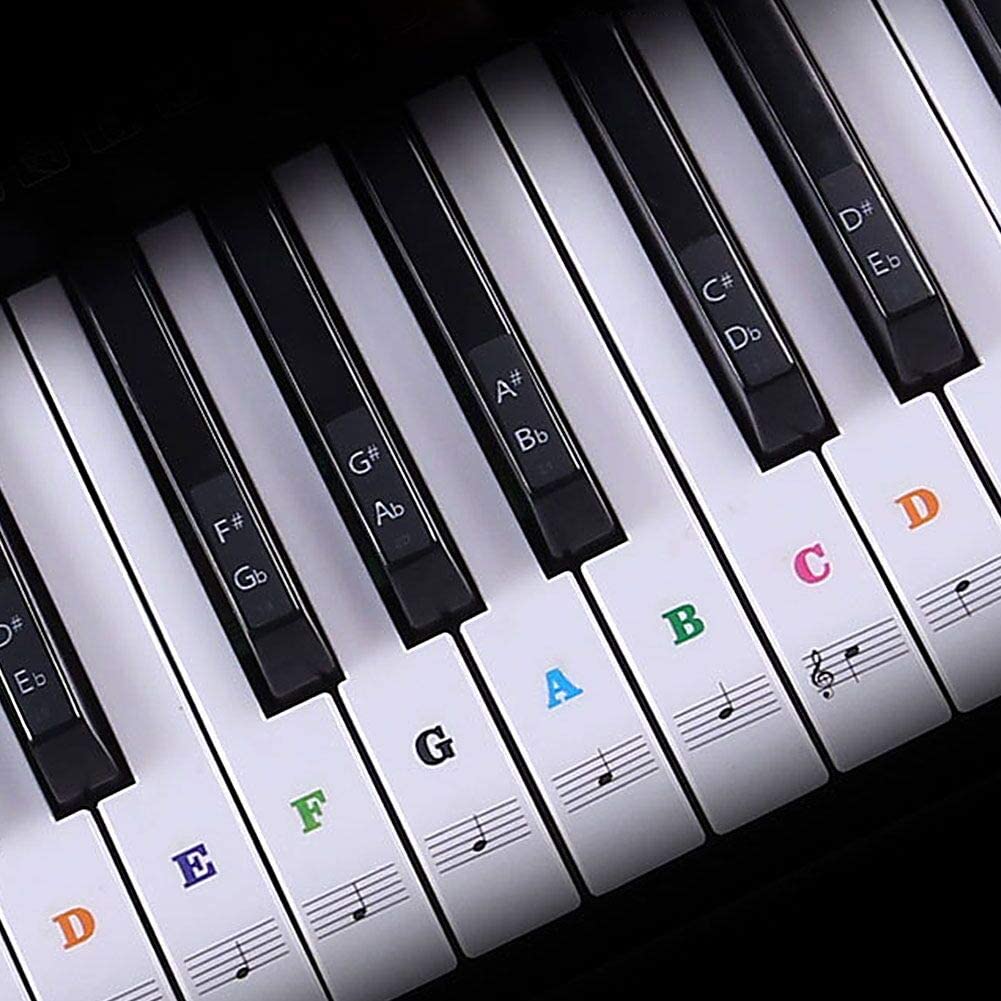
Although we don’t recommend this to everyone, for beginners who are really struggling to understand their keyboard geography*, we recommend they purchase piano stickers which can be stuck onto the individual keys. This will allow students to cross check reading their hand position with the music at a faster pace.
*Keyboard geography is how efficiently we can navigate the layout of the piano keys with the sheet music.
2. Treble Clef and Bass Clef
The Treble Clef can also be called the ‘G Clef’. This is because the first curve at the bottom crosses the letter G line which is found on the second line up on the stave.
Similarly, the Bass Clef can also be called the ‘F Clef’. This is because the large dot on the left-hand side of the clef where we would begin to draw the clef is on the second line down on the stave which is where we would find letter F on the music.
We can therefore use both of the alternative names of these clefs to work out notes on our music that are closer to them, as supposed to working them out from Middle C, which would take a longer period of time.
3. Treble/Bass Clef Acronyms
In music, there are several acronyms which can help us remember the pattern of the notes within the spaces and lines on the music.
For example, in between the Treble Clef spaces we can spell the word: ‘face’. In between the Treble Clef lines, we have the acronym: ‘Every Good Boy Deserves Football.’
In between the Bass Clef spaces we have an acronym which reads: ‘All Cows Eat Grass.’ In between the Bass Clef lines we have another acronym which reads: ‘Good Books Deserve Full Attention’.
4. Ledger Lines
Ledger lines are notes which are written below or above the stave.
Sometimes reading ledger lines can feel quite daunting but it’s important to bare in mind that the same patterns and rules apply when travelling from a line to a space on the music.
If we remember from section three of this article, the Treble Clef spaces spell the word ‘face’. We can also re-spell the word ‘face’ if we begin from the top line of the stave and ascend upwards on the music.
For most of us, we don’t tend to read ledger lines as frequently as the notes within or not too far out from the stave, so we may struggle to read ledger lines as fluently. However, using this hack will help you become more familiar with notes with the ledger lines faster!
5. Memorise Key Signatures
Finally, in order to read more complex music faster, you’ll need to learn and understand key signatures.
Key signatures tell us which flats and sharps we have in a scale, exercise or piece of music, rather than writing out the individual sharps or flats next to the notes.**
In the illustrations above you’ll find acronyms which will help you learn and memorise the order of the flats and sharps within key signatures and how they appear within the music.
**Writing a sharp, flat or natural sign directly next to a note in a scale, exercise or piece is known as an ‘accidental.’
Remember that when you are trying out these hacks to look at them little and often but also be patient with yourself. If you wish to know more about these hacks and resources, feel free to take a look around our website or connect with us directly.

“We’ve been doing lessons for a while… but how do I know if it’s actually working?” This is one of the most common and completely valid questions parents ask themselves, especially if they’re not musical. Progress in piano doesn’t always look or sound obvious in the early stages. Unlike some activities, results aren’t instant and that can feel worrying when you’re investing time, money, and emotional energy into your child’s learning. The reassuring news? Most healthy musical progress happens quietly before it becomes obvious. Here’s what to realistically expect over time and when not to worry. What Progress Often Looks Like around 3-6 Months(if they began as a beginner) At this stage, progress is mostly about settling in. You might notice: Your child feels more comfortable sitting at the piano They recognise lesson routines They’re starting to listen more carefully, even if notes aren’t perfect What’s normal here: Hesitation Needing reminders and support This isn’t slow progress, it's foundation-building. What Progress Often Looks Like at 7-12 Months This is when progress becomes clearer to most parents. You may notice: Greater independence Less hesitation when playing Improved posture and focus Pride in what they can play Not every child is ready for grades at this stage and that’s perfectly fine.Your child is learning how to learn and that skill takes time. Strong foundations now often lead to faster, more confident progress later. If you have any questions please feel free to reach out!

“They’ve had a long day… should we still push through practice?” Many parents feel torn between supporting consistency and respecting their child’s energy levels especially during busy school weeks. The truth is: Tiredness doesn’t mean lack of commitment. It often means your child’s brain needs a different approach. Here’s how to handle it without guilt or pressure. It’s reasonable to adjust expectations when: Your child is overwhelmed with school or clubs They’re emotionally exhausted Concentration is unusually low Short, calm practice is far more valuable than long, frustrated sessions. Sometimes: 5 focused minutes beats 20 stressed ones Listening to a piece counts as engagement Talking about the lesson reinforces learning How Teachers Adapt During Busy Periods Good teachers expect fluctuations in energy. During tiring phases, lessons may focus more on: Confidence and comfort Reinforcing known material Gentle technical reminders Enjoyment and connection to music This doesn’t slow progress, it protects it. How Parents Can Communicate This Proactively One of the most helpful things you can say is: “It’s been a heavy week. Please let us know what’s realistic to focus on.” This allows the teacher to: Adjust expectations Support your child emotionally Keep progress aligned without pressure You’re not letting anyone down you’re advocating. What Matters Most Long-Term Children who feel supported (not pushed) are more likely to: Stick with lessons Build confidence Develop a healthy relationship with learning Music is a long journey - not a sprint. A Gentle Reminder for Parents Rest, flexibility, and understanding are not signs you are supporting them. If you’re unsure how to balance tiredness with consistency, we’re always happy to help you find a rhythm that works for your family. If you have any questions please feel free to reach out!
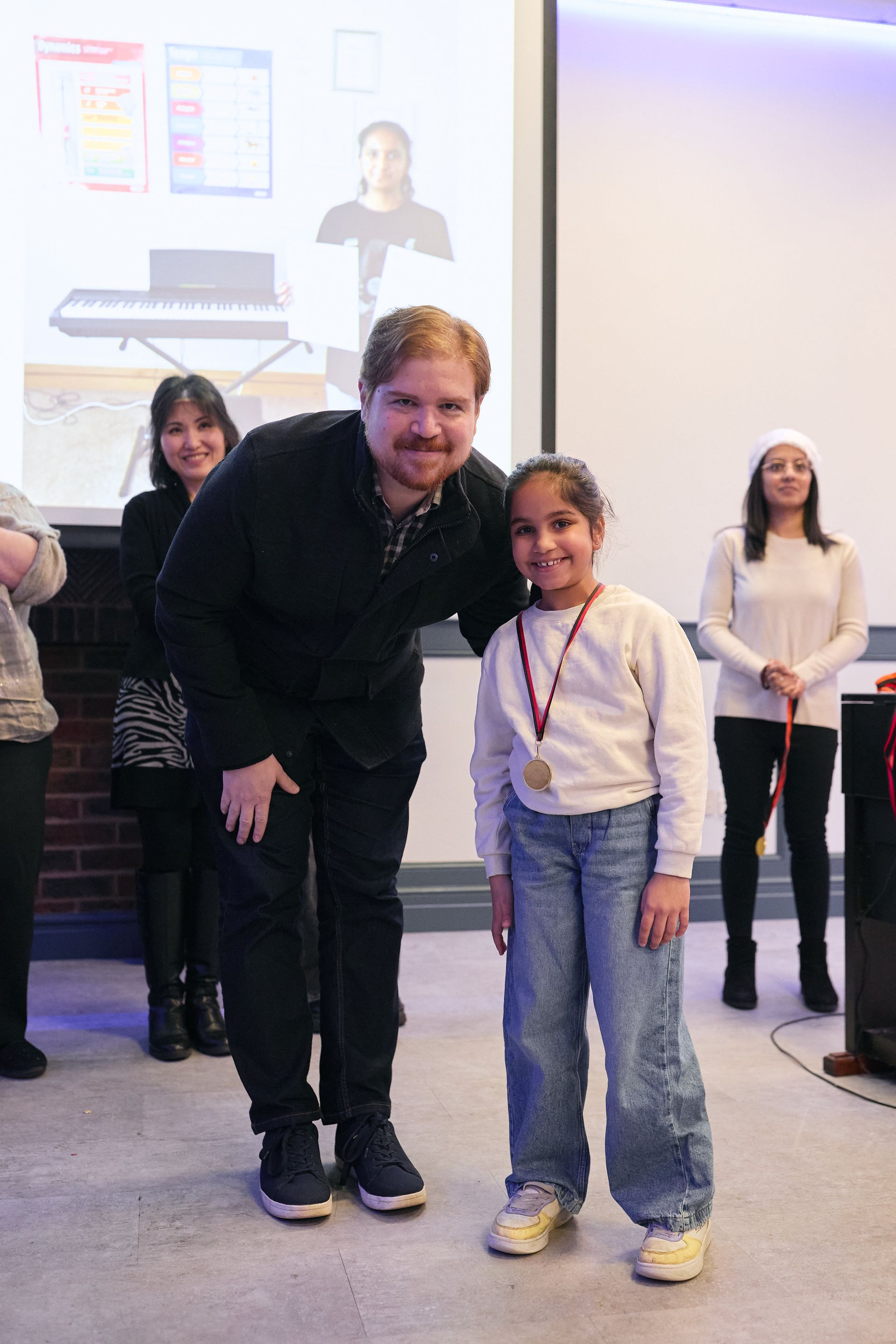
Many parents tell us the same thing: “I want to support my child’s piano learning but I’m not musical, so I don’t know what to look for.” The truth is, you don’t need to read music or play the piano to be a huge part of your child’s progress. What matters most is how you observe, encourage and communicate, not your musical knowledge. Here are three simple, practical ways to stay involved and confident. 1️. Sit In on Lessons (Even Occasionally) You don’t need to attend every lesson -just sitting in from time to time can make a big difference. When you observe a lesson, you begin to notice: How your child is guided to sit and place their hands How the teacher breaks tasks into small, achievable steps The language and cues your child responds to Sit in for 10-15 minutes once every few weeks. This is to absorb rather than to assess. This helps you support practice at home using the same language the teacher uses. 2. Record a “Before vs After” Video One of the clearest ways to see progress - especially for non-musical parents - is through short videos. How it works: Record your child playing a song or exercise Then record the same song or exercise 5–6 lessons later, or on the day the teacher says it’s “finished” You’re not looking for perfection. Instead, notice small but meaningful changes: Confidence: Do they sit more comfortably and start playing more willingly? Hand position: Do they find their starting position more quickly? Flow: Are there fewer pauses or gaps in the music? Even tiny improvements are signs of progress - especially at this stage of learning Keep the video private. This isn’t for comparison with others - it’s simply a reminder of how far your child has come. 3. Set Simple Checkpoint Goals With the Teacher Progress doesn’t always mean “moving up a level”. For younger learners, it often shows up in skills and habits. Setting small checkpoint goals helps you know what to look out for at home. Examples of helpful checkpoint goals: “Starting the piece without help” “Finding hand position independently” “Playing through without stopping” “Feeling confident playing for someone else” Ask the teacher: “What’s one thing we should notice improving over the next few lessons?” This gives you clarity and keeps expectations realistic. A Reassuring Note for Parents At ages 6–8, piano progress is often gradual and subtle and that’s exactly how it should be. Confidence, comfort at the keyboard, and smoother transitions are just as important as notes and rhythms. By observing, recording small milestones, and staying aligned with the teacher, you’re already playing a vital role in your child’s musical journey even if you’ve never played a note yourself. If you have any questions please feel free to reach out!

